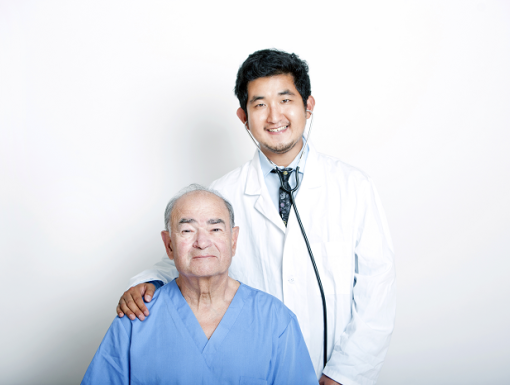
Do You Really Need a Primary Care Doctor?
You’re busy, you’re relatively healthy and you’re not even sure how one goes about getting a primary care doctor. Do you really need one?
The answer is absolutely.
Your primary care physician doesn’t just help when you have a medical emergency. They also keep you healthy the rest of the time. Check out these six reasons you should be seeing a primary care physician.
You can ask anything.
Your primary care doctor can help you work through a range of issues. Dealing with a persistent cough, feeling anxious or suffering from acid reflux? A visit to your primary care doctor can be your opportunity to ask about all of the above. Your primary care doctor is trained in treating a wide variety of conditions and can also help you coordinate care should you need to see a specialist.
You can get help managing your chronic care.
If you’re dealing with diabetes, arthritis, migraines or other chronic conditions, your primary care doctor can help you keep track of all the care you need. Your doctor can help you manage your medications, identify emerging treatment options and perform routine tests to make sure you’re staying on track
Your primary care physician is the quarterback of your healthcare. They are responsible for ensuring your care is being appropriately managed if there are multiple specialists involved.
You can get comfortable.
Talking about your body and health can feel uncomfortable at times, but your primary care doctor will get to know you personally and can help to break down any barriers to having an open, honest conversion about your healthcare.
You can establish a medical history.
Your primary care physician will also get to know your medical history to establish a baseline for your care. If you’ve ever experienced that moment when you feel like you’re not explaining your symptoms well enough or you’re not sure if something is normal for you, your primary care doctor can help by knowing your medical history and understanding your specific needs. Your primary care provider should know you best.
You can catch small issues early on.
Your primary care physician can help to flag small issues through routine screenings and targeted questions to help prevent any health concerns from developing into larger problems. This can also help to lower your overall cost of healthcare as waiting too long or ignoring symptoms can lead to ER visits, hospitalization or extensive specialty care.
In an article published in the Journal of the American Medical Association in 2019, researchers surveyed 70,000 American adults either with or without a primary care provider. They found that Americans with primary care “received significantly more high-value care, slightly more low-value care and reported significantly better health care access and experience.”
You can trust your course of treatment.
Your primary care doctor may be able to help prevent any unnecessary or harmful treatments or medication. Because your primary care physician knows you and your medical history, he or she can help you avoid unneeded testing by having a shared discussion with you on recommendations for or against treatment and work up. A primary care doctor can even flag medications that could be potentially harmful depending on your current prescriptions, specific needs or medical history.
Who can be your primary care physician?
Your primary care physician can be from a wide range of backgrounds. Here are a few common types of practices that offer a primary care physician depending on your needs.
- Family medicine physicians can care for patients of all ages, from infants to the elderly. Family medicine physicians can provide preventative care including routine checkups, immunization and health screenings. They can also manage a variety of chronic care and can help you coordinate care with a specialist should you need one.
- Internal medicine physicians are trained to manage complex adult healthcare ages 18 and older. They have significant training with the internal medicine subspecialties such as endocrinology, cardiology, rheumatology and many others. Internal medicine training occurs in both outpatient and inpatient settings, which allows an internal medicine physician to manage a wide range of complex adult healthcare considerations.
- Pediatricians specialize in the care of newborns, infants, children and adolescents. A pediatrician may have a relationship and a knowledge of the medical history of a child from birth into adulthood.
Altogether, finding a primary care physician who is right for you and your family can help you be the healthiest, best version of yourself. A primary care physician at Ochsner also means that you have an electronic medical record accessible wherever you go in the Ochsner network, from primary care to specialists, to urgent care and ERs, ensuring the best care and coordination for you.



